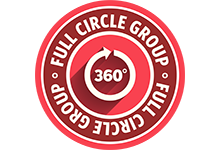As business coaches for auto repair shop owners, we have seen so many shops ignore one crucial aspect. That is measuring their processes. Precision helps shop owners find issues and reduce costs. The bottom line is that measuring systems improves your efficiency. This article stresses gauging your auto repair systems, so let’s dive in!
Introduction: Insights Into Efficiency
Running an auto repair shop comes with its own set of unique challenges. From handling customer expectations to making complex repairs, there is a lot on a shop owner’s plate. However, many shop owners do not know the power of gauging the steps they must take for each and every repair. You can gain many big insights into what you do when you do so. Then, you can make crucial data driven choices by tracking and studying your key metrics.
The Importance of Measuring Your Auto Repair Processes
Listing Your Shop’s Own Issues
When you measure your auto repair systems, it will shine a light on shortfalls that cost your shop both time and money. Pinpoint the areas of improvement by tracking metrics such as cycle time and first-time fix rate. Do certain repair jobs always take longer than expected? That may show a need for either more training or a better workflow.
Reducing Your Costs
Cost control is a top priority for any business owner. This is true, regardless of what industry they happen to work in. Auto repair shops are no exception to this rule. When you measure out your automotive repair processes, it will help you to identify the ways you can save money. Analyze such metrics as your technician yield and your parts usage. Those could uncover many expenses you need to reduce, all without losing quality. This can then lead your shop to big time savings over the long haul.
Improving Efficiency
Efficiency is a vital component to running a successful auto repair shop. Measuring each process will help you identify your holdups and simplify your day to day operations. By tracking the metrics related to workflow and resource usage, you can adjust them in order to optimize your efficiency. This will lead you to both faster turnaround times and increased customer satisfaction. Not to mention you will see higher profits!
Implementing a Measurement System to Increase Efficiency
When you install a measurement system for your auto repair processes, it will require both careful planning and precise execution. Follow the four steps below:
Define What Your Goals Are
Start by clearly stating what your auto shop’s business goals are. What specific outcomes do you want to achieve in the future? Some examples could include reducing your cycle time by 20%, or perhaps increasing the first-time fix rate to 90%. Be sure that you define clear, specific goals so you can guide your measurement efforts.
Select Appropriate Metrics
Choose the metrics that will both align with your goals and provide the right insights. Consider critical metrics such as cycle time, first time fix rate, mechanic output, and customer happiness. Tailor each of the metrics to your shop’s unique needs and goals.
Collecting and Analyzing Data
Establish a way in which you can both collect and analyze your chosen metrics’ data. You may need to use a niche software, but old fashioned manual tracking methods could work just as well. Ensure that the data collection process is accurate and consistent, as well as reliable.
Taking Action
Collecting data is only valuable if you take action based on it. Regularly review the data and note any problem areas you observe. Work with your team to write action plans and make the needed changes. This will help you address shortfalls and improve every aspect of your business.
Benefits of Measuring Auto Repair Processes
There are so many perks that result from gauging your auto repair processes. Here are just a few of the rewards you can expect:
Identifying What’s Blocking Your Efficiency
When you measure your repair actions, you can identify any of the bottlenecks that might hinder your workflow. Does a specific repair task take way too long? Do you have far too few resources in house? Then, you need to address these shortfalls for the highest efficiency.
Streamlining Your Daily Operations
Measure your auto repair methods in order to simplify tasks. This eliminates steps that are both needless and redundant. Optimizing workflow, resources, and communication helps your shop’s efficiency. This will reduce both errors and delays.
Enhancing Your Customers’ Experiences
An efficient repair process creates a better customer experience. Exceed your customers’ trust and foster loyalty by reducing their repair times. Increasing first-time fix rates and offering the best service also help your reputation. Satisfied customers are more likely to both return and recommend your shop to others.
Conclusion: Gauging Processes For Efficiency
Measuring your auto repair processes can both reduce your costs and improve your efficiency. When you track key metrics, find problem areas, and make data driven changes, you can streamline tasks and provide a better customer service experience. Do not count out the impact measurement can have on your overall success.
You Net Results
Contact You Net Results today, so we can begin the process. Book your own free consultation. Brian Gillis and our team will help you to start your shop’s leadership foundation. Our vast network of auto repair shops all work together to build up the industry. Let’s make this month the best month of your whole business life!











